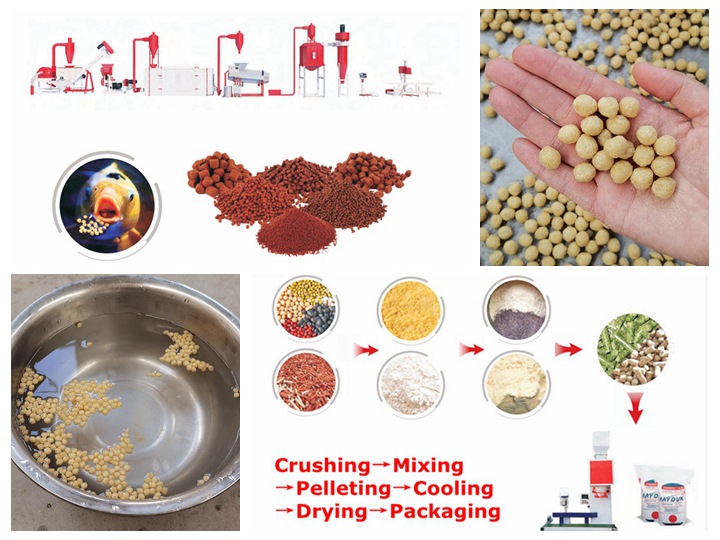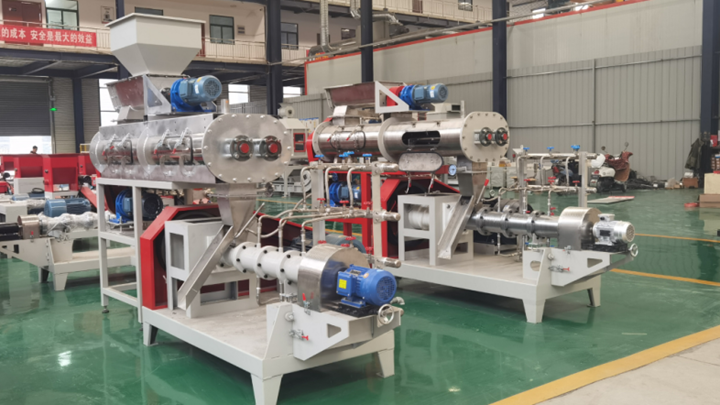Advanced pelleting systems are capable of delivering durable, water-stable particles that increase feed efficiency. Pelleting also increases nutrient digestibility and reduces microbiological activity. Many of these advantages are the result of heat treatment of ingredients, followed by pressing the mix into discrete particles. Treating feeds with See full list on globalseafood.org The improved handling and performance of feeds brought about by additional processing also led to the application of extrusion in the feed industry. Low-moisture and dry extrusions have been utilized for many years. Although their applications are usually limited to the extrusion of dietary ingredients such as full-fat soy, extrusion of complete di... See full list on globalseafood.org The similarities between dry extruders and expanders are striking, and close examination of the principles involved and effects on final products reveal only subtle differences. Expanders are usually quoted at much higher capacities than dry extruders. This is made possible by putting less energy into the product per unit of throughput. This fact i... See full list on globalseafood.org Early extrusion systems focused mainly on production of floating feeds, but more advanced systems are capable of delivering a complete range of expansion control. The greater process flexibility for extrusion as outlined in Table 4 is primarily due to the ability to impart more energy into the product. See full list on globalseafood.org This increased flexibility is reflected in higher processing costs, as extrusion will generally require more than double the cost inputs per ton compared to pelleting. In compensation for this greater cost, extrusion offers the capability of utilizing lower levels of starch and supplemental binders and higher levels of fat and fiber. This can subst... See full list on globalseafood.org Both pelleting and extrusion have found a niche in the manufacture of aquatic feeds. Pelleted feeds are largely confined to sinking aquatic feeds such as those for shrimp, trout, and others where the fat requirements are below 12 percent. Extrusion, on the other hand, can provide feeds for these species plus those that require higher levels of fat ... See full list on globalseafood.org
MORE

.jpg)
.jpg)
.jpg)
.jpg)
.jpg)
.jpg)
.jpg)

.jpg)
.jpg)
.jpg)
.jpg)
.jpg)
.jpg)